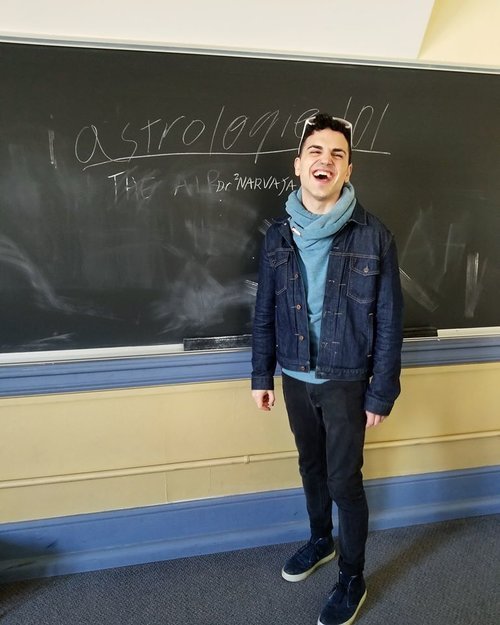I graduated from the University of Washington School of Medicine with an MD and I am currently a first year combined internal medicine-pediatrics resident at Louisiana State University or LSU Shreveport. I served as the Membership Secretary of the Washington State Astrological Association from 2019-2022. I have attended one of the largest astrological conferences in the US, NORWAC (Northwest Astrological Conference) since 2018 multiple times. I trained in horary astrology through Deborah Houlding’s School of Traditional Astrology and studied primary directions under the tutelage of Martin Gansten, PhD. Aside from astrology and tarot, I have a strong interest in immunology, rheumatology, feminism, as well as history and philosophy of science. I hope to integrate my work as a physician with my interest in astrology as I engage with others and account for their relationship with the world. Even without a full integration, astrology provides me with a distinct, invaluable perspective on others’ lives and potential paths forward. I value the unique ways astrology helps me to connect with people I would not otherwise connect with.
My Story
I was born in Buenos Aires, Argentina and moved to Seattle, Washington in October of 1997. I admired my parents’ sacrifices in moving to provide my siblings and me with greater opportunities for life success. I honored their dedication to our family by taking advantage of every opportunity I could. From late elementary school through high school, I always took advanced courses in math and sciences.
I dreamt of becoming a doctor as a way to honor what my parents sacrificed for our family.
I entered college at the University of Washington planning to major in microbiology to complete the prerequisites for medical school. I changed plans upon completing an elective Gender, Women, and Sexuality Studies course. I discovered feminism provided me both with new information and a different way of thinking about the world that I could not find in traditional biomedical disciplines. I became fascinated by the gender dynamics of people’s interactions and the political nature of science itself. By the end of college, I graduated cum laude with departmental honors in Gender, Women, and Sexuality Studies.
It was after college that I focused on what it meant to approach science in a fundamentally feminist way. I did not want to learn medicine and then be feminist about it—as if feminism was some lens that could be taken off as easily as it could be put on. I approached medicine by understanding its scientific basis in a fundamentally feminist way. In my commitment to exploring a career in feminist science research I focus on the field of immunology. I chose immunology due to my curiosity about how cells grappled with the same questions of identity when moving to different parts of the body, or even different bodies. I found my own struggles as an immigrant moving to a different country reflected microscopically. While exploring these questions, I realized I lacked a strong sense of identity from within myself; I was overly dependent on others’ validation. It was during this vulnerable moment that I discovered tarot and astrology.
I began practicing tarot during a period in my life where I struggled to trust myself and who I was.
I needed to traverse and understand my own traumatized psychological terrains and cultivate these internal landscapes back to health. I longed to reconnect with my body and identity. Tarot helped me nurture my intuition and trust myself. I learned tarot’s seemingly supernatural ability to always provide relevant answers and emotional validation was something I could use to help others. It was through tarot that I discovered astrology and soon joined the Washington State Astrological Association to solidify my involvement in the astrological community.
In exploring astrology, I was nostalgic of when I first discovered feminism; astrology provided a distinctive framework through which to think about the world that was coherent with my own feminist scientific understandings of nature. I saw its theoretical rigor—reflected in the precision and specificity of its answers—as part of its potential to help others. By creating a sense of relatedness to the outer reaches of our galaxy, astrology allows us to examine our relationship to the parts of ourselves we unconsciously suppress, marginalize, or ignore. Fortifying these connections allows one to fully claim themselves, live a more embodied life and experience relational restoration. The unique relational power of astrology is why I approach it with the same academic rigor and diligence that I approach both medicine and feminism.
“He who does not understand astrology is not a doctor but a fool”
— Hippocrates




